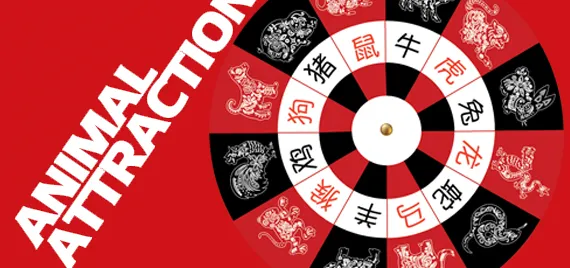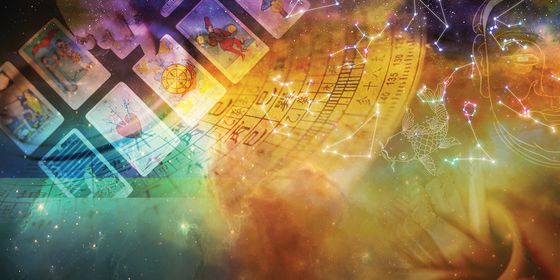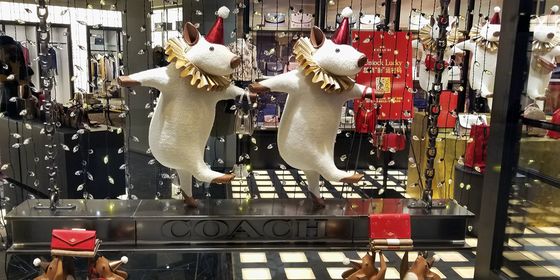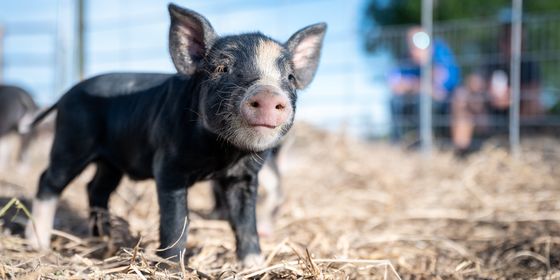How China’s zodiac superstitions affect modern life
The introduction to Chinese bureaucracy was particularly swift and uncompromising for babies born in Guiyang, Guizhou Province in early November, 2014. When they were scarcely out of the womb, their mothers discovered the hospital had reached its allotted number of birth certificate forms, thus ensuring the very first document to record their existence was denied, or at least delayed.
A boom in births meant that the 70,000 birth certificates set aside for Guiyang (5,000 more than were set aside in 2013) had been reached. New babies had to be given temporary identification papers, which lacked the required watermarks and other security measures. The situation resulted in wrangling between local and provincial governments, as well as the National Family Planning Commission, as confusion and bureaucratic red tape stymied efforts to provide birth certificates for these babies.
So, why the sudden boom in births? Media reports detailing Guiyang’s birth certificate crisis were quick to point out that the year of the horse was drawing to a close, with the much more unpalatable lunar Year of the Sheep looming on February 19, 2015.
Zhang Xiaobo, 27, a white-collar employee in Beijing whose wife gave birth in September, 2014, summarized the problem quite succinctly when he said, “My parents persuaded me to have a horse baby, or a monkey baby (referring to children born in the lunar years 2014 or 2016) to avoid the sheep year.”
Zhang is of a generation with varied views on the significance of the Chinese zodiac, which assigns particular traits to children born each year and labels each year as being related to one of 12 sacred animals. But even young people like Zhang, who take the Chinese zodiac about as seriously as those who read their horoscopes for a laugh over breakfast, receive pressure from relatives who take it very seriously indeed. The birth of Zhang’s baby in September ensured the child was born in the Year of the Horse instead of the Year of the Sheep.“Even though we, the young generation, don’t always believe the old sayings, apparently, my baby’s birth date was able to satisfy everyone. According to what I heard, a horse year is perfect for a baby boy.”
“I guess it is probably because the image of a horse is often linked with good stuff, like heroes, loyalty, and such,” Zhang says. “A sheep might be seen as more modest…It’s an ominous symbol.”
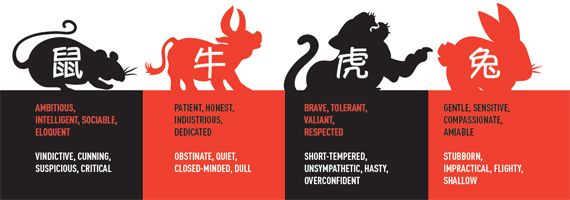
Views on the benefits and drawbacks of each of the zodiac animals vary across different parts of the country. Beliefs related to the animals are often passed down through the generations, and various families and villages have their own interpretations of the significance of each animal. However, certain beliefs are fairly widespread—such as the undesirable status of children born in the sheep year. These people tend to be viewed as kind, gentle, affable, and meek but easily manipulated. In a society which has become ruthlessly competitive, a child born with these traits is seen as a liability for the family. This is in stark contrast to those born in dragon or tiger years, who are viewed as take-charge go-getters who will someday bring the family good fortune.
Births in dragon years are so prized that, as one family’s tale goes, in the village of Potang roughly ten years ago in the Yuecheng District of Shaoxing City, Zhejiang Province, villagers responded to a particularly fierce storm by forming a posse to brave the elements and go to find children born in the dragon year. These children were believed to have a direct link with the heavens, and thus their prayers were seen to hold the key to stopping the storm.
The authorities are certainly aware of the significance these superstitions can have on demographics. In what may have been attempts to hose down baby booms and busts, the state-run China News Service along with the Guangzhou Daily, in reference to the extensive criticism of those born in the Year of the Sheep, pointed out that the country’s Premier Li Keqiang was in fact born in a sheep year, as was Bill Gates, who is widely respected in China. But despite criticism of these superstitions from the authorities, scientists, demographers, and the media, these beliefs stubbornly remain, even among many of the increasingly cynical youth of the country.
BOOMS AND BUSTS
The authorities have good reason to fear these booms and busts, as it isn’t merely a stable 12-year cycle China must contend with. Certain years are regarded as particularly auspicious, as each animal also goes through five elements: water, fire, earth, wood, and metal, meaning there are, in effect, rotations of 60 years for an animal of one particular element. To complicate things further, in-depth analysis of the Chinese zodiac points out that beyond years there are also animals assigned to months, days, and even hours of birth, meaning there are more animals representing various aspects of one’s nature.
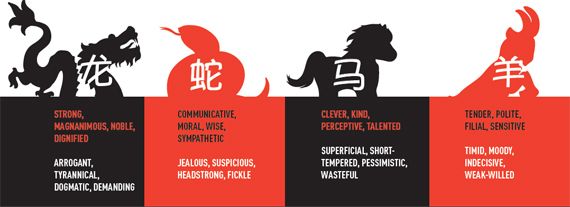
In 2007, The Economist reported that officials were expecting a sudden boom in children related to that year, the golden “fire” pig year, which due to other astrological considerations, was particularly rare. The same commentary pointed out that this boom was prompting fears of education shortages over half a decade in advance.
Meanwhile, that same year, the state-run China Daily reported on the education problems associated with a previous auspicious year—the year 2000, which was also the vaunted Year of the Dragon. Around 36 million babies were born that year, according to figures from the National Bureau of Statistics, a stark contrast to the 19.09 million in 1999 and 17.02 million in 2001.
Primary schools around the country were packed to capacity as the young dragons came of school age, with the Ministry of Education issuing announcements that it would need to take sharp measures to deal with the situation.
But, this of course, is a regular occurrence. As the lunar New Year of 1992 began on February 4, The New York Times correspondent in Beijing reported on the festivities, announcing in an article headlined “It’s Year of the Monkey, and Good for Babies”, that a frail, 87-year-old Deng Xiaoping was appearing on television to usher in the Year of the Monkey. Authorities were already predicting a boom in births, partly as a delayed reaction to 1991’s Year of the Sheep, as soon-to-be parents who had avoided giving birth in the Year of the Sheep—most of whom were limited to just one child—were expected to start procreating. The media at the time were already trying to stress the advantages of having children in a sheep year, namely the reduced competition for education resources.
China’s family planning policy exacerbates these birth boom and bust cycles, as for many years parents have had to pin all their hopes to one child. Recent moves to loosen the policy and allow parents who meet certain criteria to have a second child have met with a lukewarm reception, partly because urban parents struggling with high rent and education costs appear to be deciding that one is enough and partly because that one child had better be born with every advantage possible—zodiac or no.
The intensity of these baby booms has been felt particularly in Hong Kong, where a constant influx of pregnant women from the mainland has pushed tensions to the breaking point. The expectant mothers travel to Hong Kong partly for the better medical services on offer, but mostly because they want their children to be eligible for the extra benefits and education options available to residents of the special economic zone. The increased competition for Hong Kong’s medical resources has provoked significant enmity against mainland residents, particularly during birth booms, and in recent years the government has been taking action to try to restrict pregnant mainland women from giving birth there.
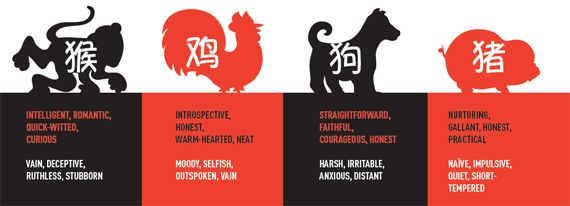
But, despite the media commentary on potential birth booms or busts, which comes around without fail at the beginning of each lunar year, there are those who say the significance of the zodiac on birth numbers is overstated.
Duan Chengrong, a demographer who is one of the few to research the issue, said in an interview with The Washington Post that while these birth booms are a factor on a smaller scale, on a national scale there doesn’t seem to be any discernible effect. He points out that a wide variety of factors affect birth rates, and says the zodiac is just one ingredient among many.
DATES WITH DESTINY
Beyond the day of birth and even after graduation, young Chinese are stalked by their zodiac animals, which even accompany them on dates. Enthusiastic believers in the Chinese zodiac have a wide array of beliefs associated with relationships and matchmaking. Even the normally blessed dragons and tigers have certain difficulties here and most certainly should not spread their blessings with each other.
“Dragons and tigers should not go together; they will maul each other,” one young Beijing local said, requesting anonymity when she also added that nobody in her family would date or marry someone born in a sheep year, which is also sometimes referred to in English as the goat year. “I would say all my family members try to avoid dating goat people, I remember one case where someone married someone born in the goat year, everyone was against it.”
She referenced a folk saying “十羊九不全” which translates as “nine out of ten goats’ [lives] won’t be complete”.
“It is meant in the sense of your marriage, which means your marriage won’t be stable, or it can mean your career, or it can be in the sense of your fate, as in your destiny, like you would die early,” she says.
Although those born in the sheep year get a particularly raw deal, every zodiac animal has other animals it is said to attract or repel. A brief online search reveals a plethora of websites offering to help people find their perfect match based on the Chinese zodiac. Whether they do so via compatibility grids, fortunes, diagrams, or personalized consulting services, a wide variety of advice is on offer, and in some traditional families, a trip to the local zodiac consultant to get the go-ahead is a must-do before the wedding.
Usually, it is fairly easy to guess which matches would work well and which would not, based on the stereotypical anthropomorphic personalities assigned to each animal. The relationship between the dog and monkey would be described as “volatile” as the monkey could scarcely resist pulling the dog’s tail. On the other hand, the serene ox and the early-rising rooster could easily live a relaxed life together down on the farm. Sometimes it is a bit harder to guess—a monkey’s ideal partner may be a snake. In most cases, finding someone who shares the same zodiac animal is seen as the safest bet.
Even beyond dating, those persistent zodiac animals still follow couples. In some cases, before a wedding, a meeting with an expert on the zodiac is a must in order to make absolutely sure the couple will have a blessed future.
STAR SIGN OF THE TIMES
But as with many modern trends in China, Western attitudes are also having an effect. While the Chinese zodiac still rules supreme among older generations, some members of the younger generation are turning to Western astrology for guidance. Where once the zodiac animals ruled supreme, conversations can now just as easily turn to whether someone has the fussy habits of a Virgo or whether their star sign suits their career.
Felicia Jiang, founder of popular astrology website Nodoor.com, points out that the modern, more “trendier” language of astrology has made it more popular among youth. While some level of awareness of astrology has been on the fringes of Chinese society for many years, she points out that it experienced a massive surge in popularity in 2002, when a number of large web portals, including Sina, started publishing frequent reports. “The establishment of a horoscope channel on Sina really pushed the popularization of astrology,” she said, adding that her website in 2010 began “to push for the education of professional astrology.”
Although it isn’t particularly common, there have been a number of reported cases of “astrological discrimination” when it comes to hiring practices. In one widely reported incident, Liaoning’s Peninsula Morning Post was the first to break the story of a college graduate who found she met all the criteria for a position, except for the fact the position was requesting that candidates be Gemini, Libra, or Aquarius.
However, it would seem to go both ways. In another case, a candidate for a position was reported to have turned down the job because her boss was a Pisces, which was incompatible with her status as a Leo.
The rising importance of astrology in Chinese society was starkly highlighted during recent online commentary regarding the suitability of matches between Geminis and Scorpios. In the rough and tumble of astrological assignations, these two are often regarded as poor matches for each other. As November 20, 2014, rolled around—and with it discussions of Scorpios—remarks on these particular matches were abruptly scrubbed from a number of prominent web portals. Incidentally, the wife of President Xi Jinping, Peng Liyuan, was born on November 20, making her a Scorpio, while Xi himself was born on June 15, making him a Gemini. The couple has been featured in a raft of recent reports, as well as a song that glorifies their relationship, which has appeared widely on state television, along with a montage of some of the couple’s high points.
Given China’s long history of zodiac beliefs, it is perhaps unsurprising that Western astrology has found such fertile ground in a country where the Communist Party officials are all atheist in name, if not always in practice. Although China has periodically experienced campaigns against religion and superstitious belief, beliefs in the Chinese zodiac and now Western astrology are likely to endure.
While the young generation may not always place quite the same emphasis on zodiac beliefs as their parents did, this is perhaps made up for with the injection of Western astrology into the mix, opening up the country in unexpected ways. Now, Chinese and Western youth can bond by discussing their similarities and differences over the simple question: “What’s your star sign?”





